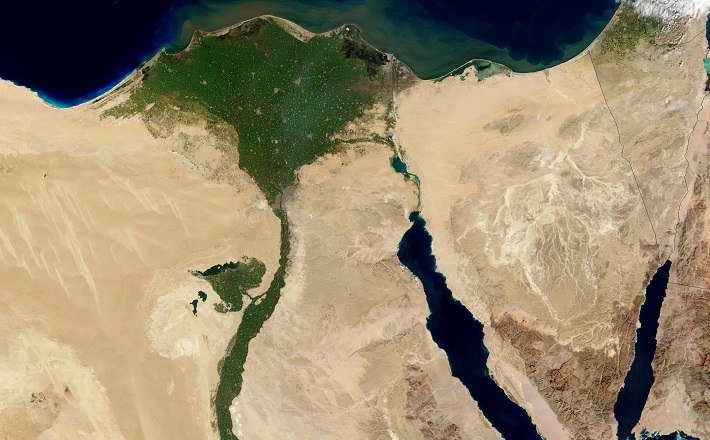Commentary on John 2:13-22
Not long ago, I was walking by the gym on the college campus and I noticed a semi-tractor trailer parked outside the gym.
Generators were running. Several workers were unwinding long electrical cords and hooking them up to stuff. It looked like a game was being televised.
So imagine that picture: electrical cords, TV crew vans, tractor trailer-sized generators. And then imagine someone with a giant pair of hedge trimmers, cutting all the cords outside a basketball venue in the middle of a game. The extra lights in the arena go out. The scoreboard goes black. The cameras stop filming. We would not say that such a person was “cleansing” the basketball venue. We would say he had stopped the game.
In the same way that you need electricity to play a game inside a basketball arena, you need cattle and sheep and doves and money changers to run the Jewish temple. Jesus makes it impossible for people to buy animals for the required sacrifices, and impossible for those who have come from all over the Empire to change their money and pay their tithes. Jesus is stopping the game.
Why? If you were raised in the church, you probably learned somewhere along the line that the problem was corruption: people were not just selling animals, they were cheating other people as they did. The other three gospels help us down the road to this conclusion. In Matthew, Mark, and Luke, Jesus borrows from the prophet Jeremiah to accuse those who are selling things of making the temple a “den of robbers.” Maybe Jesus raises a ruckus in the temple to protest corruption and to clean it up, if only for an afternoon.
But in the gospel of John, this conflict in the temple takes on a different meaning. Jesus is not acting against corruption, or at least he is not only acting against corruption. He is involved in performance art. Jesus brings temple activity to a standstill in order to point to another holy place altogether. “Destroy this temple,” Jesus says, “and in three days, I will raise it up.”
Like a lot of what Jesus says in John, this line from Jesus does not follow from what precedes it. You hear it, and you think, “Huh? Who said anything about destroying the temple?” Even the people listening to Jesus are confused. They point out that the temple has been under construction for decades. “Really, Jesus, you’re going to rebuild it in three days?”
The narrator tries to help us all out. “He was speaking of the temple of his body,” John writes.
“O…K…” If you are a trusting reader of scripture, you are waiting for this to make sense. If you are suspicious one, you may already have left the building.
The temple was the meeting place between the God of Israel and God’s people. Sacrifices were offered during religious festivals and at special times in people’s lives, such as in honor of a birth or in thanksgiving for a harvest. The temple was a holy place. It was a place where human life and divine blessing met.
In John’s Gospel, the body of Jesus is the new “holy place.” “The Word became flesh, and lived among us,” John writes. In the incarnation, with the birth of Jesus of Nazareth, God’s dwelling place is with human beings, as a human being. So Jesus baits the Jewish leaders: “I dare you: destroy this temple, and in three days I will raise it up.”
For Christians (and for Jews) today, scripture about the relative virtues of temple-based worship is pretty far from our experience. But we do care about where precisely our lives might intersect with the divine life. First century Jews are not the only ones to spend time thinking about where the divine and human meet.
Where does God meet you? Is the meeting place a church sanctuary filled with light? Or maybe it is a cathedral that looks completely dark until your eyes adjust to the dimness. Do you see God in a candle flame? Do you know the transcendent through a piece of music? Maybe you recognize God in the water, bread and wine of the Sacraments? Maybe your holy place a hike or a vista that puts you in the presence of God. Maybe it is silence.
The surprise in today’s gospel reading is that Jesus says that the transcendent is present in his body. The gospel of John makes this claim, that a human body — unique but also a lot like your body or mine — is the holy place of God. Jesus was not just “wearing” a human body like a set of clothes. He was a human body, as inseparable from his body as you are from yours. And God was inseparable from him.
During the season of Lent, we follow the body of Jesus as he travels to Jerusalem, as his hands braid pieces of rope into a whip to herd cattle and sheep out of the temple, as his knees bend to the feet of the disciples to wash them. We watch him eat and drink with his friends, and we follow him to the garden, where the bodies of his disciples unsuccessfully fight off sleep while Jesus sweats through a prayer that he might not have to endure the torture in his immediate future. We see him beaten, crucified, taken down from the cross, and laid in a tomb. And in the stories of his resurrection, he is still a body — huggable, touchable, scarred, and eating.
In all these events, the body of Jesus is the location of God, and the point of connection between divine and human life. From John’s perspective, little (if any) of this was clear, even to the disciples, at the start of Jesus’ ministry; hence the need to offer the word twice in this text that “his disciples remembered…” They needed time and more experience with Jesus to understand. At the beginning of Jesus’ ministry, it was not clear that Jesus was both the eternal Word and human flesh — it was not clear then but it was true then, which may explain why John places this story at the start of his gospel, rather than near the end, as the Synoptics do.
Christians are not naive about the trials of being a body, and we have no satisfying description of the miracle it will certainly be for God, after we are dead, to raise us up, incorruptible. Nevertheless, we will not let go of that hope, precisely because God was committed enough to human flesh and blood to become it in Jesus Christ, and committed enough to human flesh and blood to raise Jesus up after his death, as a body able to eat fish, and point out scars to Thomas, and ask Peter to feed his sheep.


March 4, 2018